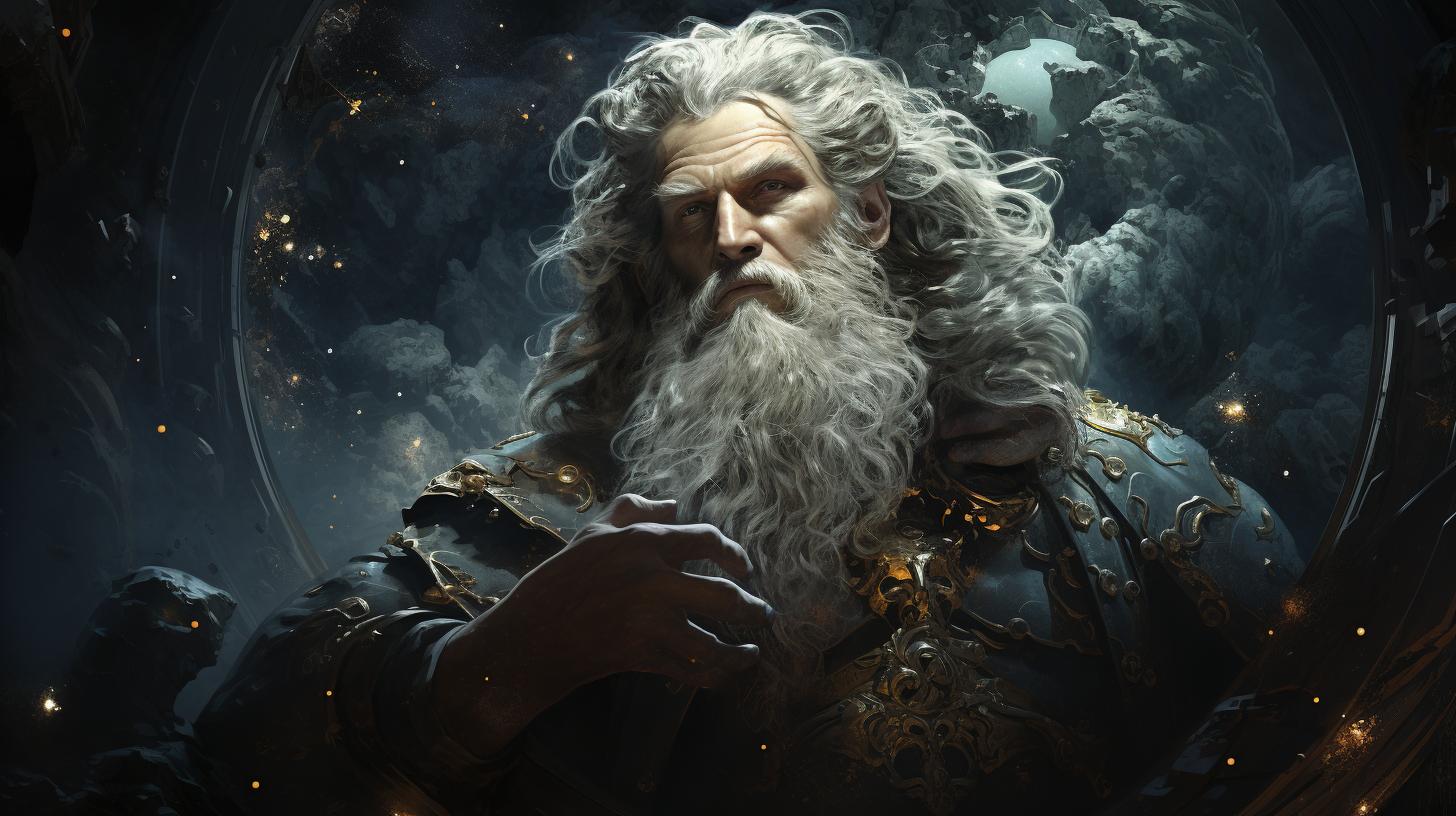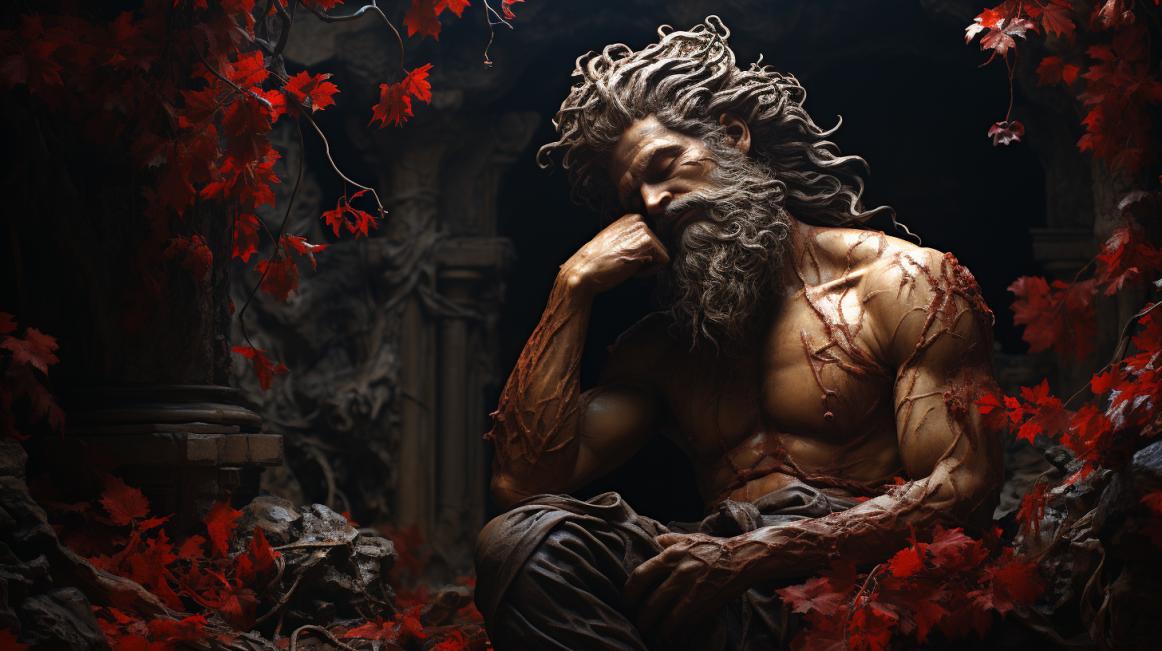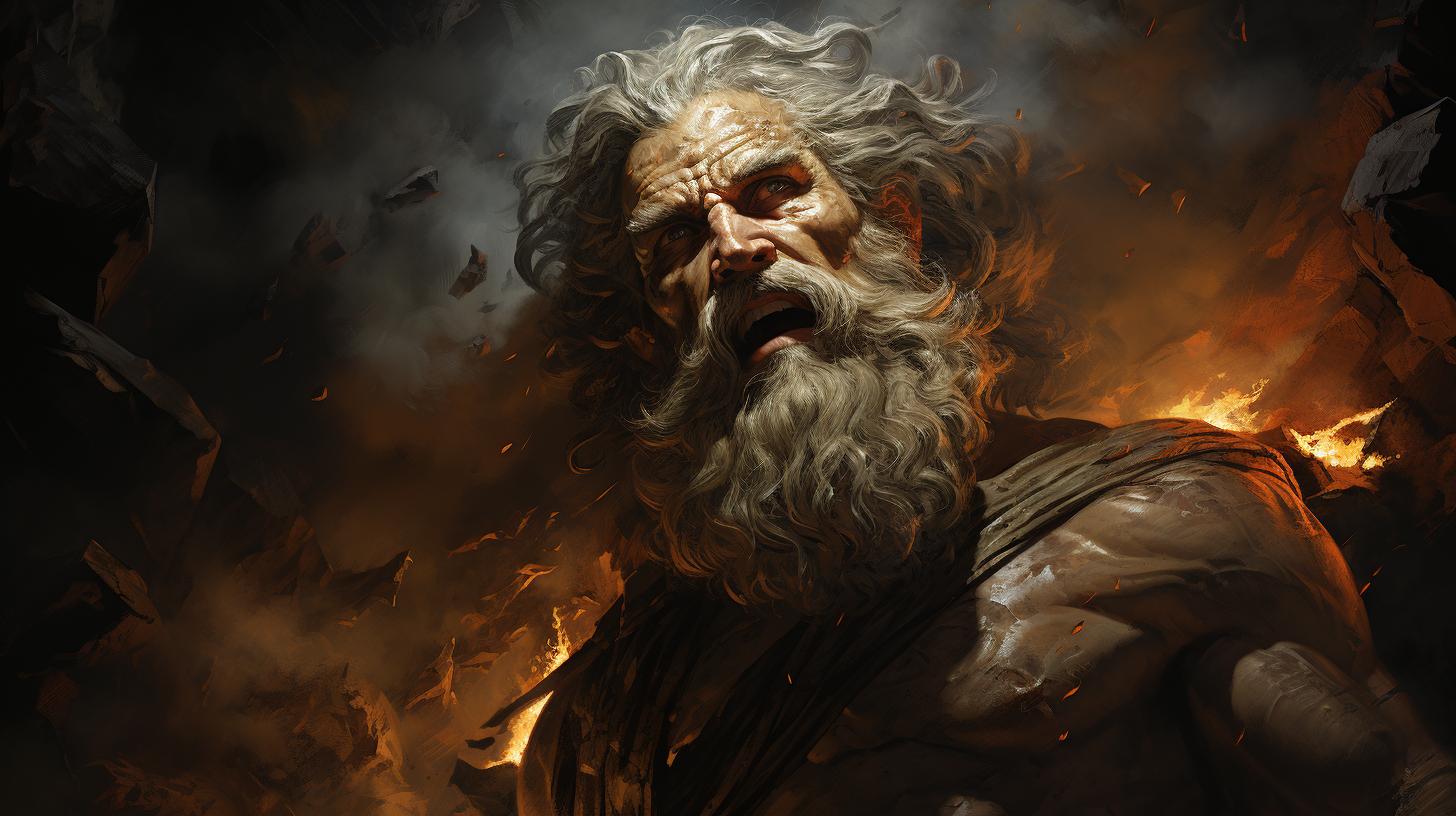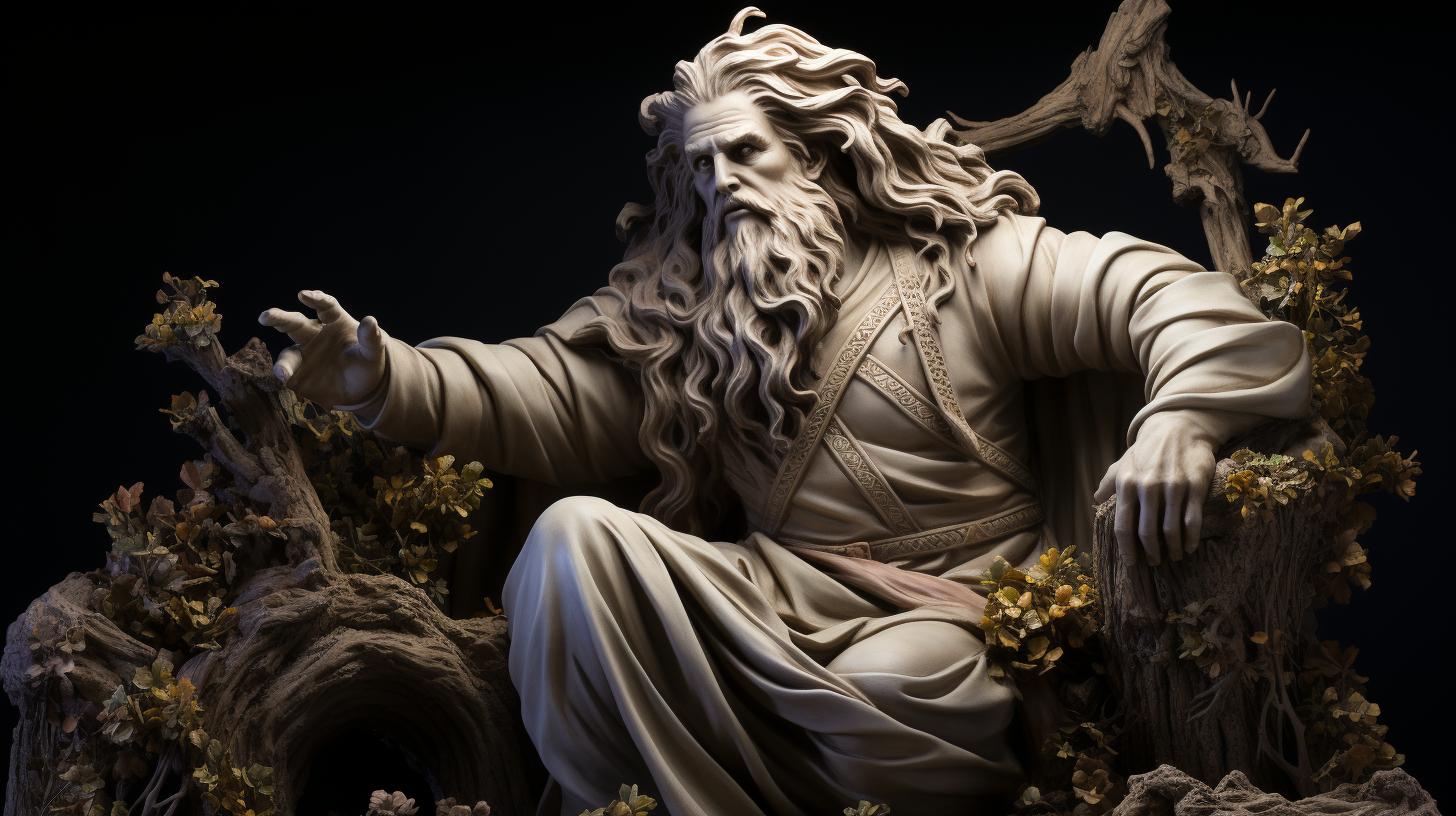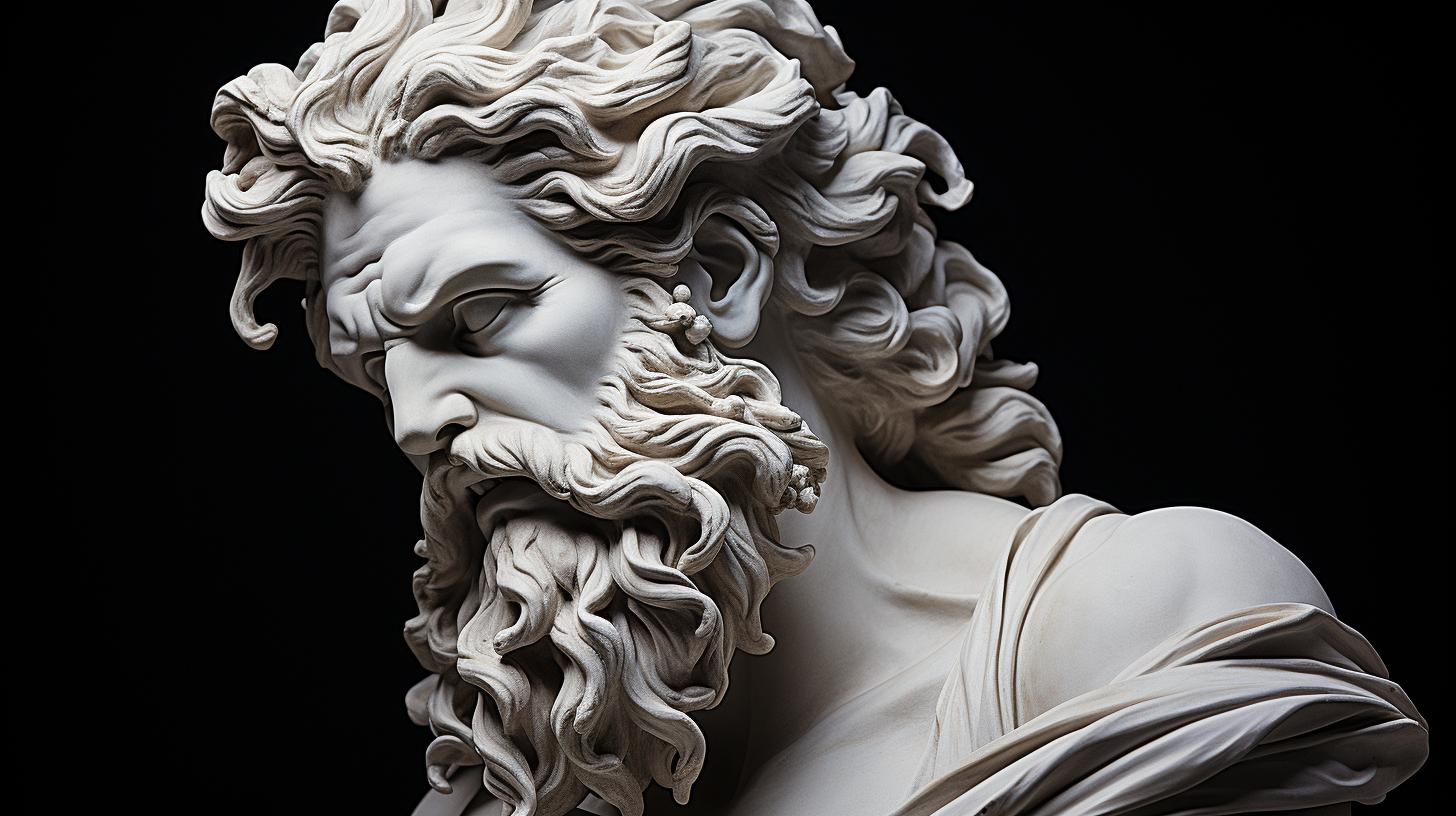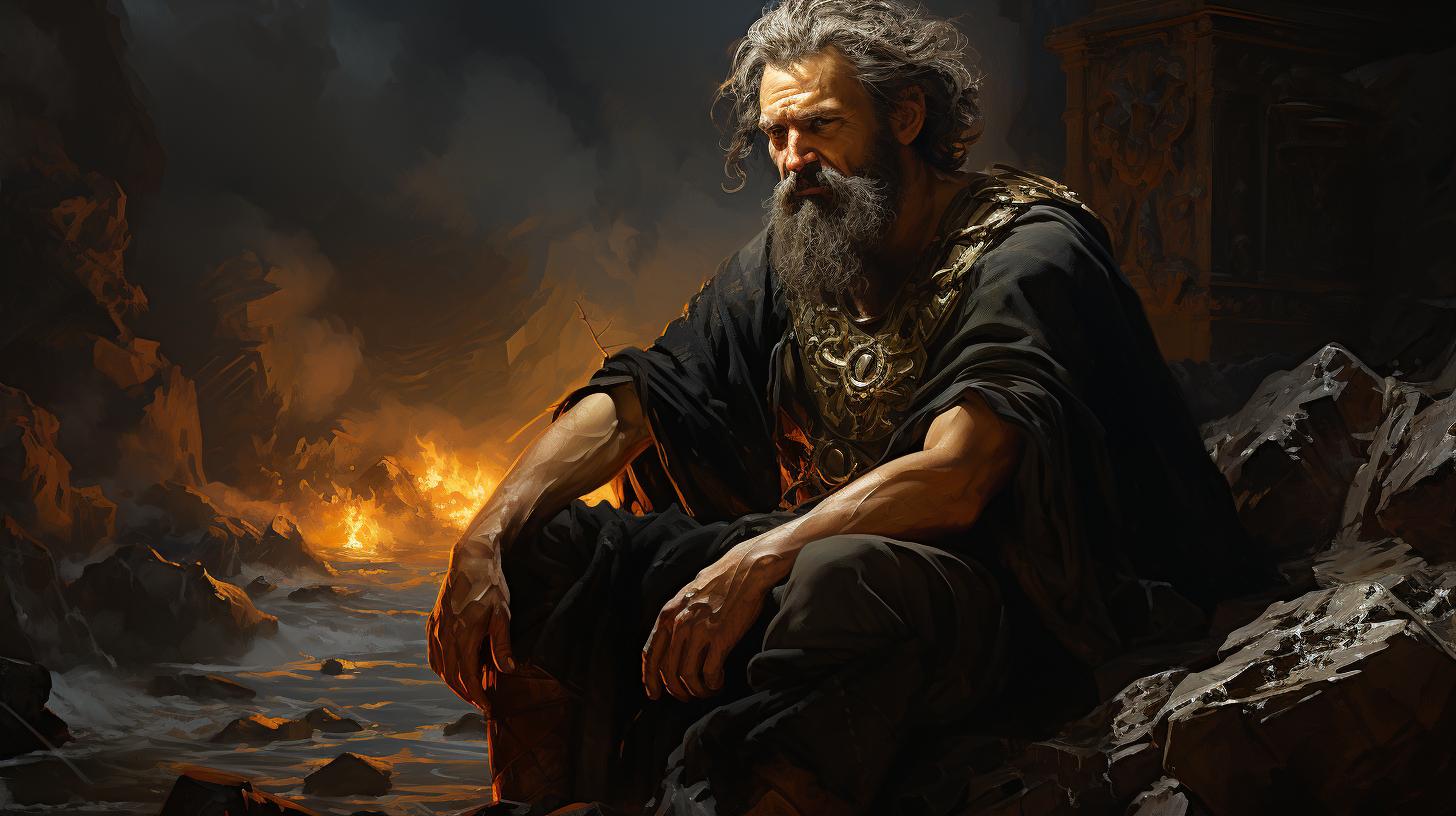Exploring the Mythology of Iapetus in Greek Mythology – A Fascinating Tale from Ancient Greece
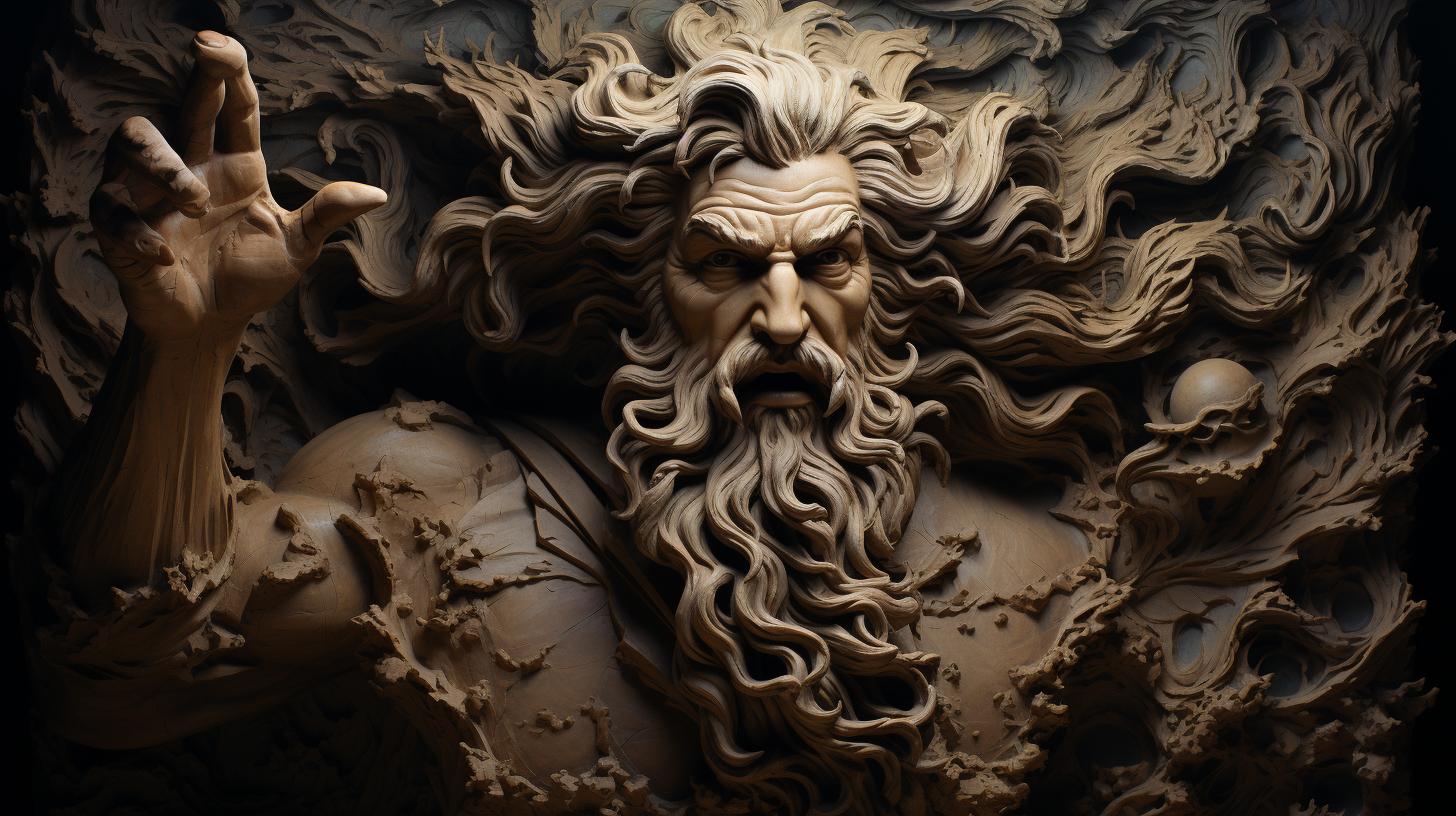
Iapetus, a prominent figure in Greek mythology, was one of the Titans who ruled before the Olympian gods. He is associated with mortals, credited with helping create mankind.
Iapetus also has connections to time and mortality. Zeus punished him for siding with the Titans in their war against the Olympians, banishing him to the depths of Tartarus. While not as well-known as other Titans, Iapetus played a significant role in the overall narrative, with descendants like Atlas, Prometheus, and Epimetheus.
His influence can be seen in literature and even astronomy, where one of Saturn’s moons is named Iapetus.
Iapetus in Greek Mythology
In Greek mythology, Iapetus is a significant figure as one of the Titans who ruled before the Olympian gods. This section explores his origin, parentage, and his role as a Titan.
Although less known than some of his siblings, Iapetus plays a crucial part in the overall narrative.
Origin and Parentage
Iapetus is the son of Uranus and Gaia, and a brother to Cronus, Oceanus, and Coeus among others. This lineage connects him to the primordial deities who were the ancestors of the Titans and other divine beings in Greek mythology.
Role as a Titan
As a Titan, Iapetus is associated with mortals and is said to have helped in creating humanity. He is also linked to the notions of time and mortality, representing the limited nature of human existence in contrast to the immortality of the gods.
Association with Mortals and Creation of Humanity
Iapetus played a significant role in the creation of mankind, reflecting his connection to mortal beings. His involvement in shaping humanity emphasizes the intricate relationship between gods and mortals in Greek mythology.
Relationship with Time and Mortality
Iapetus embodies the concepts of time and mortality, highlighting the transience and vulnerability of human life. His presence in Greek mythology serves as a reminder of the inevitable passage of time and the temporality of human existence.
Lesser-known Titan, but Significant in the Narrative
While not as prominent as some other Titans, Iapetus still holds a significant place in Greek mythology. His descendants, including Atlas, Prometheus, and Epimetheus, are more widely recognized figures.
This section sheds light on their stories and their connection to Iapetus, showcasing the complex relationships and conflicts between gods and Titans.
Prometheus in Greek Mythology
Prometheus, a prominent figure in Greek mythology, holds a fascinating mythological background and parentage. Known for his famous deeds and relations with both gods and mortals, Prometheus occupies a significant place in ancient Greek narratives.
Mythological Background and Parentage
Prometheus is the son of the Titan Iapetus and the Oceanid Clymene. As a Titan, he was part of the divine generation that ruled before the Olympian gods. His siblings include Atlas, Menoetius, and Epimetheus.
Famous Deeds and Relations
One of Prometheus’ most famous deeds was his theft of fire from Mount Olympus and his subsequent act of giving it to humanity. This act bestowed upon humanity the ability to advance and progress, sparking the growth of civilization and knowledge.
Prometheus also played a role in the creation of mankind. He molded humanity out of clay and breathed life into them, becoming the benefactor and protector of the human race.
Theft of Fire and Gift to Humanity
Prometheus’ daring act of stealing fire from the gods symbolized his defiance of divine authority and his desire to uplift humanity. Fire, a symbol of knowledge, enlightenment, and progress, became a gift bestowed upon mortals, empowering them to overcome the darkness of ignorance.
Consequences and Punishment by Zeus
Zeus, the king of the gods, was angered by Prometheus’ act of defiance. As punishment, Prometheus was bound to a rock, where each day, an eagle would descend and devour his regenerating liver.
This perpetual torment was to serve as a reminder of the consequences of challenging the power of the gods.
Prometheus as a Symbol of Human Struggle against the Divine
Prometheus represents the eternal struggle of humanity against the divine. His defiance and sacrificial act of stealing fire exemplify the human quest for progress, knowledge, and independence. In his suffering, Prometheus embodies the resilience and enduring spirit of mankind, inspiring generations to challenge boundaries and strive for a better future.
Atlas in Greek Mythology
Mythological Background and Parentage
Atlas, a prominent figure in Greek mythology, was one of the Titans and the son of Iapetus. He was born to Urano and Gea, alongside his siblings Cronos, Hyperion, Crius, Coeus, Rea, Tetis, Teia, Mnemosyne, Phoebe, and Themis. Together, they formed the powerful pantheon that preceded the Olympian gods.
Significance and Symbolism
Punishment and Endless Task of Holding the Sky
Atlas’ most iconic punishment was bestowed upon him by Zeus after the Titans’ defeat in the Titanomachy. As a consequence of his involvement in the war, Atlas was condemned to bear the weight of the sky on his shoulders for eternity.
This burden represented the weight of responsibility and showcased his immense strength.
Representation of Endurance and Strength
Atlas’ role as the bearer of the celestial sphere highlighted his endurance and unparalleled strength. His image became a symbol of resilience and fortitude, inspiring countless artistic representations throughout history.
He stood as a reminder of the consequences of challenging the authority of the gods, demonstrating the consequences of defiance.
In essence, Atlas holds a significant place in Greek mythology due to his lineage as the son of Iapetus, his punishment as the bearer of the sky, and the symbolism attached to his endurance and strength.
His character continues to resonate, serving as a timeless reminder of the consequences of rebellion and the power of resilience.
Epimetheus in Greek Mythology
Epimetheus, a prominent figure in Greek mythology, was the brother of Prometheus and son of Iapetus. This section delves into his mythological background and the impulsive nature that characterized his actions.
Mythological Background and Parentage
Epimetheus was born to Iapetus, a Titan, and his mother was Gaia, the Earth goddess. As one of the Titans, Epimetheus belonged to a powerful lineage. His most notable sibling was Prometheus, who played a crucial role in the destinies of both gods and mortals.
Impulsive Nature and Actions
Epimetheus, in contrast to his brother Prometheus, was known for his hasty decisions and tendency to act before considering the consequences. He often gave little thought to the outcomes of his actions, which led to several significant events in Greek mythology.
- Marriage to Pandora and the Release of Evils
One of Epimetheus’ notable actions was his marriage to Pandora, the first mortal woman created by the gods.
The marriage ultimately resulted in the release of numerous evils into the world. As a punishment for Prometheus stealing fire from the gods and giving it to humanity, Zeus sent Pandora to Epimetheus as a deceptive gift.
Epimetheus, enticed by Pandora’s beauty, accepted her as his wife. However, he disregarded Prometheus’ warning about accepting gifts from the gods. As a result, Pandora opened a jar given to her by the gods, unleashing all the sorrows and miseries that plague humanity.
- Lessons Learned and Significance in Mythology
Epimetheus’ impulsive nature and his role in releasing the evils of the world teach important lessons in Greek mythology. His actions emphasize the consequences of thoughtlessness and the importance of considering the potential outcomes of one’s decisions.
Through his story, Epimetheus serves as a cautionary figure, showcasing the perils of acting rashly without foresight.
The tale of Epimetheus underscores the intricate web of morality, consequences, and the eternal struggle between mortals and gods in Greek mythology.
His impulsive nature stands as a reminder of the importance of contemplation and prudence in decision-making.
Menoetius in Greek Mythology
Menoetius, a lesser-known son of Iapetus, played a significant role in the Titanomachy, the war between the Titans and the Olympians. His participation in the rebellion against the Olympians led to his punishment by Zeus and showcased his notable attributes and historical relevance.
Lesser-known Son of Iapetus
While Menoetius may not be as well-known as his brothers Atlas, Prometheus, and Epimetheus, his importance in Greek mythology should not be overlooked. As the son of Iapetus and brother to these renowned figures, Menoetius took part in the struggle for power between the Titans and the Olympians.
Role in the Titanomachy and Punishment by Zeus
Menoetius fought alongside his brothers in the Titanomachy, supporting the Titans’ cause against the Olympians. However, their rebellion was ultimately quelled, and Zeus emerged victorious. Menoetius, like his fellow Titans, faced punishment at the hands of Zeus for their defiance.
Notable Attributes and Historical Relevance
Menoetius’s involvement in the Titanomachy highlights his courage and determination. While his fate after the war is not extensively documented, his participation signifies the magnitude of the conflict between the Titans and the Olympians.
In Greek mythology, lesser-known figures like Menoetius contribute to the overall narrative and emphasize the intricate relationships and conflicts within the ancient Greek pantheon. Their stories shed light on the complex dynamics and struggles between the gods and Titans, showcasing the rich mythological heritage that continues to captivate audiences today.
Iapetus’s Influence on Humanity
In Greek mythology, Iapetus played a significant role in shaping humanity and left a lasting impact on various aspects, including literature and astronomy.
Connection to the Creation of Mankind:
Iapetus is closely associated with the creation of mankind.
Through his son Prometheus, he molded humanity from clay and bestowed upon them the arts of civilization. This act of benevolence made Prometheus a benefactor and protector of humanity, symbolizing the intimate relationship between mortals and Iapetus’s lineage.
Legacy in Literature and Astronomy:
Iapetus’s mythological prominence resonates beyond the realm of ancient tales, influencing both literature and astronomy.
Representation in Mary Shelley’s ‘Frankenstein’:
The name Iapetus has found its place in renowned literature, such as Mary Shelley’s iconic novel, ‘Frankenstein’. In the book, the protagonist embarks on a journey to the North Pole aboard a ship named Iapetus, symbolizing exploration and the quest for knowledge.
Astronomical Naming of Iapetus Moon of Saturn:
Astronomy also pays tribute to Iapetus, as one of Saturn’s moons bears his name. Iapetus, discovered by Giovanni Domenico Cassini in 1671, exhibits peculiar features, with its surface divided into distinct dark and bright regions.
Scientists have extensively studied its unique composition and formation, unraveling the mysteries of the universe.
Throughout history, Iapetus’s profound influence on humanity, both in myth and its cultural extensions, remains a testament to the enduring impact of Greek mythology on our collective consciousness.
.

